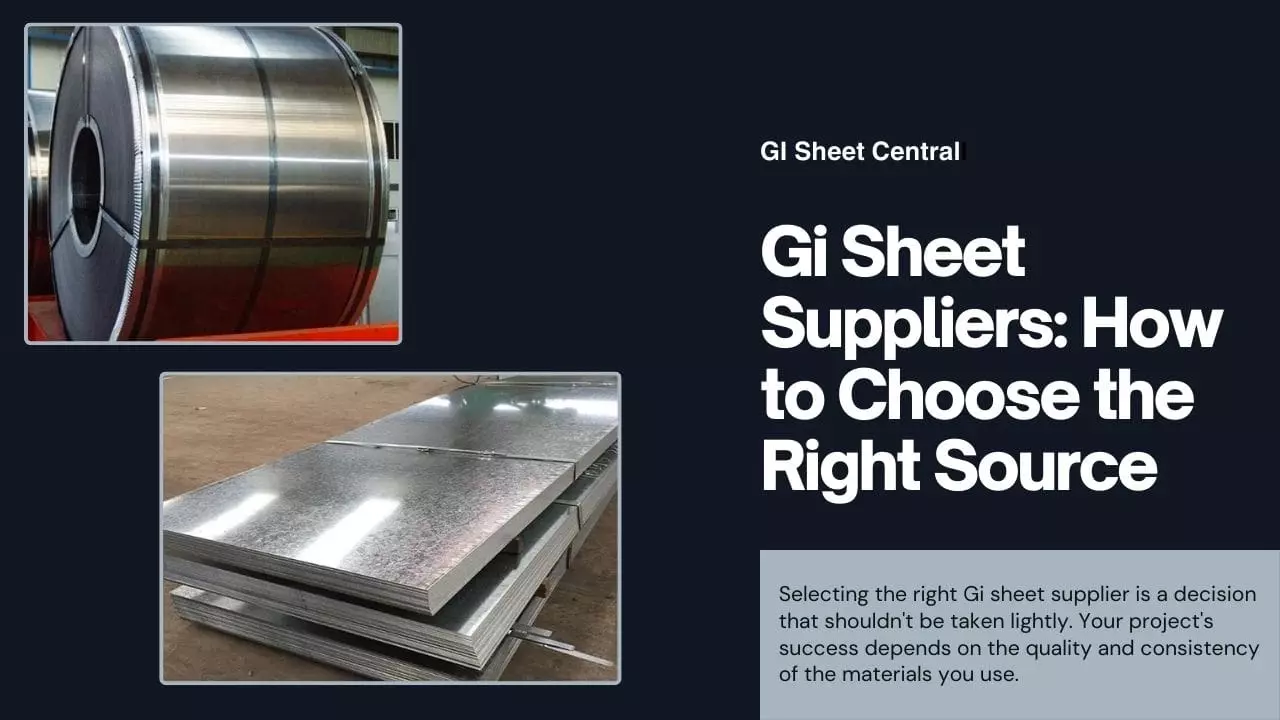When it comes to construction and industrial projects, one of the most critical decisions you’ll make is selecting the right materials. Gi sheets, short for Galvanized Iron sheets, are a popular choice due to their durability and versatility.
However, choosing the right Gi sheet supplier is just as important as choosing the material itself. As someone with years of experience in the construction industry, I understand the significance of this decision. In this guide, I’ll take you through the essential steps to ensure you choose the right Gi sheet supplier to meet your project’s needs.
Table of Contents

Understanding the Importance of the Right Supplier
The success of your project is heavily reliant on the quality of the materials you use, and Gi sheets are no exception. These sheets are used in various applications, from roofing to cladding, and even in automotive and manufacturing industries. Here’s why the supplier you choose matters:
– Quality Assurance: A reliable supplier ensures that the Gi sheets they provide meet the required quality standards.
– Availability: The right supplier offers a wide range of Gi sheet options, including different thicknesses, sizes, and profiles.
– Consistency: Consistency in the material is crucial. The supplier should provide Gi sheets with uniform zinc coating and thickness.
– Price and Budget: The supplier’s pricing should align with your project’s budget, ensuring you get value for your money.
Steps to Choose the Right Gi Sheet Supplier
Selecting the right Gi sheet supplier can be a meticulous process. Let’s break it down into steps to make it more manageable.

1. Define Your Project’s Needs
The first step is to clearly define your project’s requirements. What are the specific applications for Gi sheets? What thickness and size are needed? By having a clear understanding of your needs, you can better evaluate potential suppliers.
2. Research Potential Suppliers
Start by researching potential Gi sheet suppliers in your area. You can do this through online searches, industry directories, or by seeking recommendations from colleagues and industry peers.
3. Check Their Reputation
Once you’ve identified potential suppliers, it’s time to delve into their reputation. Look for online reviews, testimonials, and references. Pay attention to the supplier’s track record in delivering quality Gi sheets.
4. Assess Quality Standards
Ensure the supplier adheres to recognized quality standards. Gi sheets should meet relevant international or industry-specific standards for thickness, zinc coating, and other properties.
5. Pricing and Value
Obtain quotes from multiple suppliers and compare them. Keep in mind that the cheapest option may not necessarily be the best. Consider the value you get for your investment, including quality and service.
6. Product Range
Evaluate the variety of Gi sheet products offered by the supplier. Different projects may require specific thicknesses, sizes, or profiles, so having options is crucial.
7. Delivery and Logistics
Consider the supplier’s delivery capabilities. Do they deliver to your project site? Are there additional costs for transportation? Ensure that their logistics align with your project’s timeline.
8. Customer Support
Effective communication and customer support are vital. Choose a supplier that is responsive to your inquiries and can address concerns promptly.
9. Sustainability and Ethics
In today’s environmentally conscious world, consider the supplier’s commitment to sustainability and ethical practices. Are they environmentally responsible in their manufacturing processes?
10. Visit Their Facility
If possible, visit the supplier’s facility to inspect their manufacturing process and the quality control measures they have in place.
Conclusion
Selecting the right Gi sheet supplier is a decision that shouldn’t be taken lightly. Your project’s success depends on the quality and consistency of the materials you use. As someone who has seen the impact of choosing the right supplier in various construction projects, I can’t stress enough how crucial this decision is.
By following these steps and thoroughly evaluating potential suppliers, you can make an informed choice that ensures the Gi sheets you use in your project meet the necessary quality standards, budget constraints, and timelines. Remember, the right supplier is more than just a source of materials; they are a partner in your project’s success.
“If you need guidance in selecting the right Gi sheet supplier for your project, don’t hesitate to reach out to our experienced team for expert advice.”

